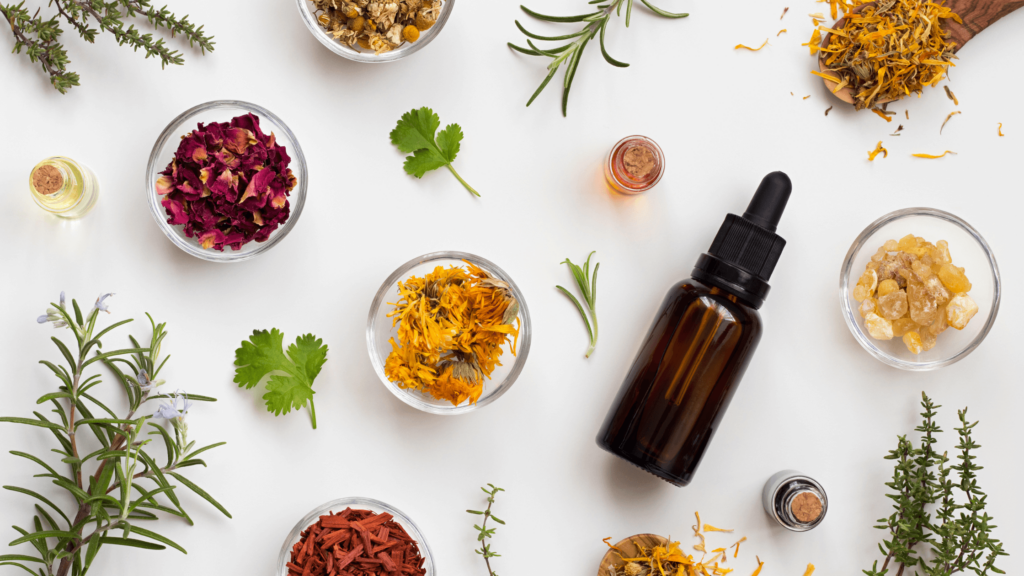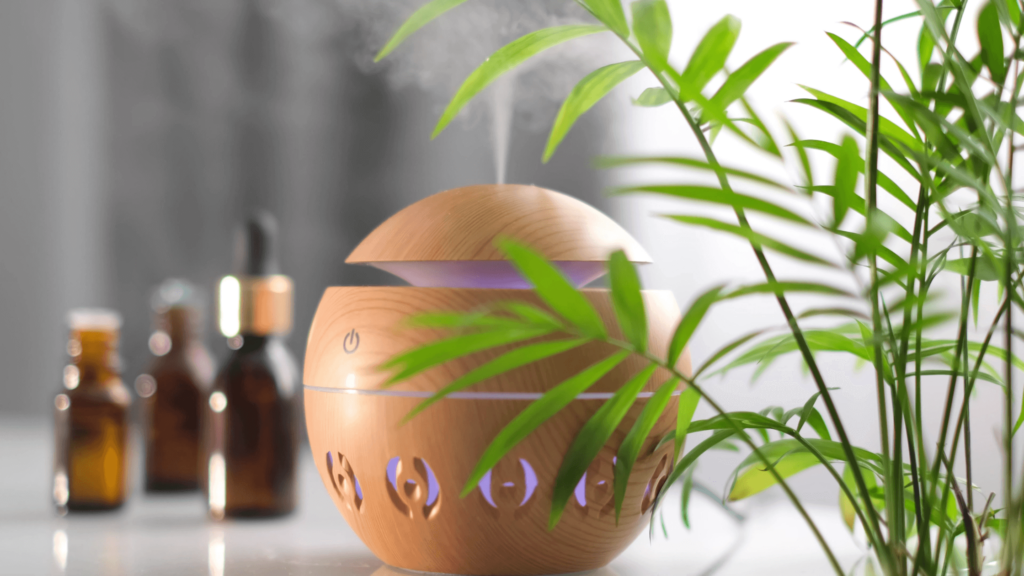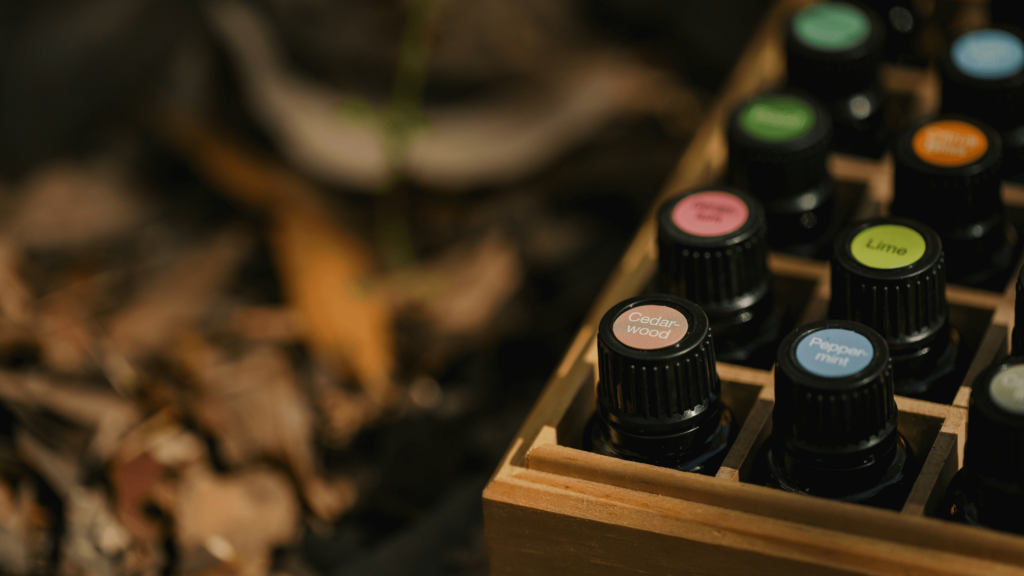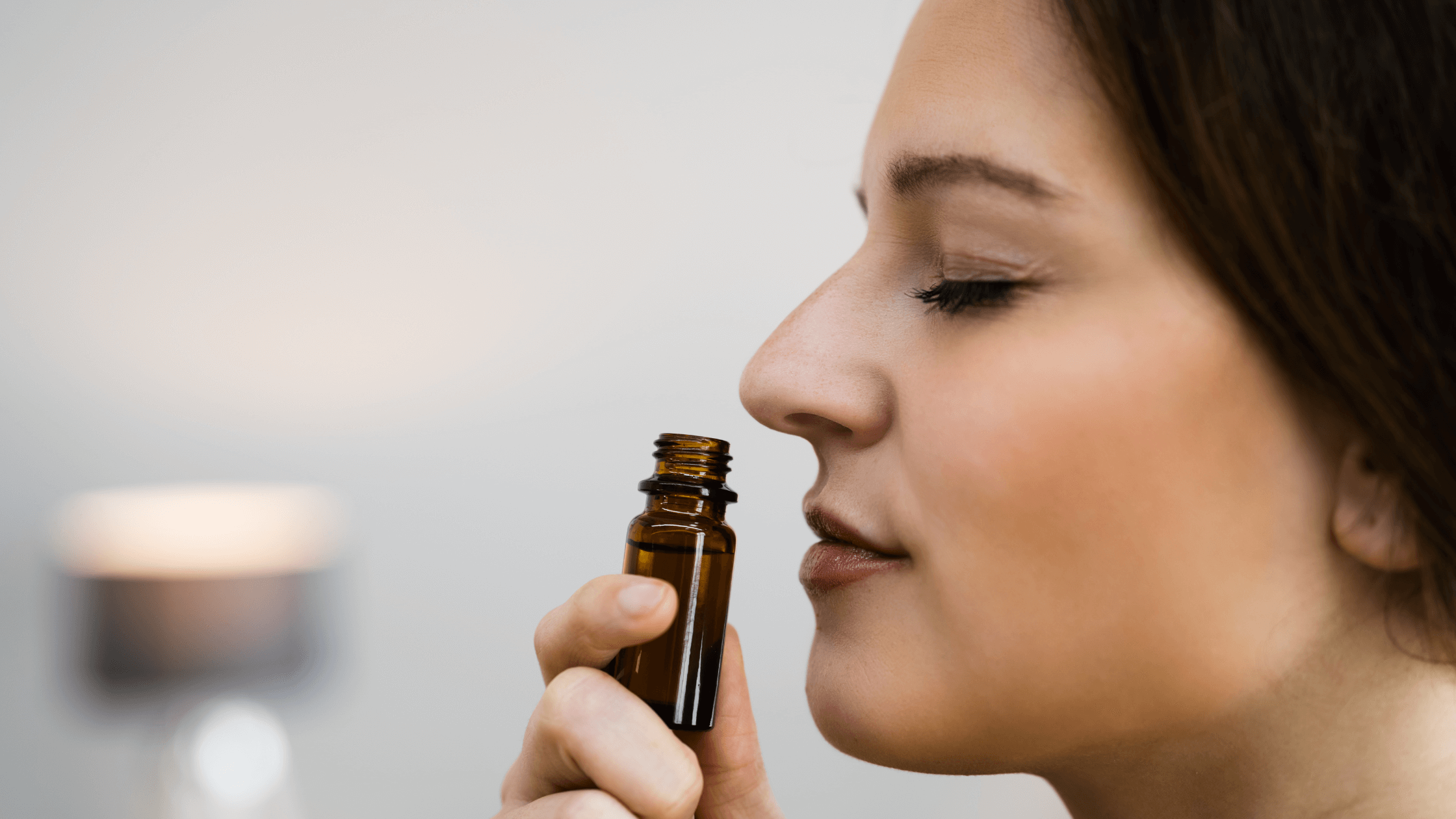Aromatherapy and essential oils for wellness have always had a negative reputation despite centuries of use in cultures worldwide. However, as science and research progress, they further confirm aromatherapy’s concrete benefits, such as supporting sleep, inducing relaxation, and reducing anxiety. Some of the best essential oils to help you relax include orange, ylang-ylang, and sandalwood.
What is aromatherapy?

Aromatherapy is a holistic therapy that affects the body as a whole—physically, mentally, emotionally, and spiritually. However, the effects of essential oils will vary based on the individual’s constitution and the oil used.
There are multiple ways to practice aromatherapy. Most people choose to seek out a professional or practice at home under the expert advice of a professional. In many cases, aromatherapy can improve mental health or relieve illness symptoms and typically increase general well-being.
How do you practice aromatherapy?
As with most medications (conventional or alternative), different essential oils have different use methods. Here are the most common ways you can practice aromatherapy:
- Inhalation
- Topical application
- Diffusion
- In a carrier lotion or liquid
- In bath salts
- In a facial steamer
- In face masks
- Added to a hot or cold compresses
How aromatherapy works

There are two ways to use aromatherapy. The most common is inhalation, like from a diffuser or steamer. When essential oils are gently inhaled, specific molecules activate the gastrointestinal, respiratory, or olfactory senses, depending on the specific route of activation. When your olfactory senses are stimulated, it kickstarts changes in your pulse rate, blood pressure, pupil dilation, muscle tension, blood flow, and body temperature.
The second pathway for aromatherapy is topical application. In this method, the oils are applied directly to the skin and absorbed, traveling to the upper and lower respiratory tract. Application to the skin can also trigger your olfactory stimulation, giving you the same physiological response as inhalation.
How aromatherapy affects the body
Now that we understand how essential oil use and aromatherapy work, we can explore their specific effects on the body.
- When inhaled, aromatherapy activates the smell receptors in the nose, which fire messages to the brain via the nervous system.
- From there, the amygdala triggers an emotional response, and the hippocampus retrieves and creates memories.
- The essential oils affect your limbic system, which impacts memory, thoughts, feelings, and emotions.
- These molecules travel to your blood vessels, bloodstream, tissues, and organs.
- Aromatherapy can also stimulate the hypothalamus, which triggers the brain to release chemicals like serotonin to make you feel good.
- Topical applications, in particular, can reduce a user’s perceived stressors, increase communication, and boost overall healing.
Can aromatherapy reduce stress?
Aromatherapy can reduce stress in a few ways, depending on the oil and application and the individual’s stress. Here are a few common areas in which many popular oils can help:
- Supporting better sleep: A 2017 study on the effects of aromatherapy on ICU patients’ stress and sleep quality found that lavender alleviated stress and improved sleep quality in just 2 days of treatment.
- Induces relaxation: Another study on the effects of lavender on pain found that menstrual pain levels were significantly different between the control and treatment groups, and the effects continued two months after the intervention ended.
- Relieves anxiety: Studies have also shown that aromatherapy via massage and inhalation can help reduce anxiety in people put under anxiety-inducing scenarios, such as surgeries.
- Boosts mood: Studies show that aromatherapy massage can reduce depressive symptoms. One study also found positive results in patients experiencing post-partum depression.
Best essential oils for stress relief

| Essential oil | Action |
| Bergamot | Increases positivity through gentle inhalation |
| Jasmine | Encourages positive emotions and peace |
| Orange | Anti-anxiety properties and increases alertness |
| Sandalwood | Increases peace and mental focus |
| Ylang Ylang | Reduces blood pressure and increases relaxation |
| Lavender | Soothes the nervous system and regulates emotions |
Who shouldn’t do aromatherapy?
While aromatherapy has many proven health benefits, it may not be for everyone. It should be avoided by people with a history of lung and respiratory issues unless approved by a licensed healthcare professional. People with asthma and COPD should not do aromatherapy, as the inhalation could irritate the respiratory tract.
Certain essential oils could also cause an allergic response in some users, so it’s important to be aware of allergies before using them.
To approach aromatherapy in the safest way possible, use these precautions.
- Consult a healthcare professional who knows your medical history.
- Follow the manufacturer’s instructions on your diffuser, and diffuse the oils properly.
- If you choose a topical application, perform a patch test to monitor your skin’s reaction in a controlled way.
- Always mix oils into a carrier oil before applying topically to avoid adverse reactions.
- Observe your body’s responses to aromatherapy and adjust accordingly. If you observe any adverse reactions, discontinue your aromatherapy practice and consult your healthcare provider.
Bottom line
Science and research continue to be on the upswing regarding aromatherapy. This low-risk holistic approach could dramatically improve your mood in the short term and your mental health in the long term. So, if you’re struggling with stress, seek out an aromatherapist—take a chance at reducing stress in an accessible, effective, and completely natural way.
Want more like this? Subscribe to our weekly newsletter for more tips and advice on aromatherapy and other holistic modalities for improving health and well-being.


